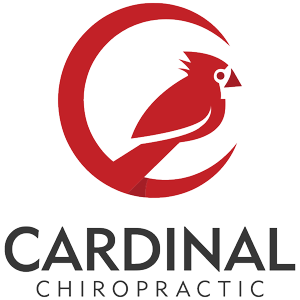This holiday season give yourself the gift that keeps on giving, the gift of health. But what exactly is health? If you were to write your definition of health down, what would you write? Many people think health is the mere absence of pain. They think that if they feel good then they must be good. Pain, however, is a very poor indicator of health. This means that just because you may not feel pain doesn’t necessarily mean that you are healthy. There are many conditions that can exist in the body without us ever even knowing about it until the end stages. Take, for example, tooth decay. For many of us when we have a cavity, we are quite surprised to learn about it. The only way we discovered it was getting a routine x-ray at our bi-yearly dental visit. Now, if you discovered that you had a cavity, but did not have any pain associated with that cavity, would you tell your dentist to leave it alone? Of course, not. Everybody knows that a cavity left unchecked will only get worse over time. Eventually, it could turn into a root canal. And if you still ignored it, beyond this point, long-term, your tooth could fall out. With all of this being said, my point is, don’t determine your health based on how you feel.
So then what is health? My definition of health is having a 100% function of all of your organs at 100% of the time. Now I understand that this could be hard to measure. This is why working on your health every day is so important. Consistently taking the steps to make sure you are at your healthiest is vital.
3 Pillars of Health
I believe that there are three pillars of health. These pillars are the foundation of everything else. When one of these is weak, it will affect all other aspects of your health. Of course, health is multifaceted involving many different areas. But I believe these three main areas are the biggest factors affecting all of the other areas.
Health is having a 100% function of all of your organs 100% of the time.
Diet
Diet plays a crucial role in overall health. A healthy diet that includes a variety of fruits, vegetables, lean proteins, and healthy fats is important for providing essential nutrients to the body. Not only can it help maintain a healthy weight, but most importantly a healthy diet supports the immune system, and reduces the risk of chronic diseases like heart disease, diabetes, and certain cancers.
For a healthy diet strive for:
- A variety of seasonal, organic fruits and vegetables. Eat the Rainbow:
 Purple: eggplant, grapes, purple cabbage
Purple: eggplant, grapes, purple cabbage
 Red: beets, strawberry, tomatoes
Red: beets, strawberry, tomatoes
 orange: carrots, oranges, yams
orange: carrots, oranges, yams
 green: broccoli, spinach, green apples
green: broccoli, spinach, green apples
 yellow: bananas, squash, yellow bell peppers
yellow: bananas, squash, yellow bell peppers
 white: onion, garlic, jicama
white: onion, garlic, jicama - Grass-fed, pasture raised meats, dairy, and eggs
- Minimally processed foods. Focus on whole, nutrient dense foods.
- Avoidance of sugary foods. Use fruit and honey as sweeteners.
- Pro-biotic rich foods like yogurt, sauerkraut, and Kiefer
- Pre-biotic rich foods like garlic, onions, and asparagus
Exercise
Exercise plays a vital role in maintaining good health. Regular physical activity can improve cardiovascular health, strengthen muscles and bones, and enhance mental well-being. It helps control weight, reduce the risk of chronic diseases like heart disease and diabetes, and improves overall longevity. Engaging in a variety of exercises, such as aerobic activities, strength training, and flexibility exercises, can provide a well-rounded approach to fitness. Especially as we age, exercise is important for you to stay functional. Movement is life and a key factor to aging well. Strive for 3-5 days a week of physical activity, with three of those days including strengthening exercises.
Good posture
Good posture is important for maintaining overall health and well-being. It refers to the correct alignment and positioning of the body while sitting, standing, or moving. Here are a few ways good posture contributes to your health:
1. Reduced muscle tension: Proper alignment of the spine and joints helps distribute the body’s weight evenly, reducing strain on muscles and ligaments. This can alleviate muscle tension and the associated discomfort.
2. Improved breathing and circulation: Good posture allows the lungs to expand fully, enhancing oxygen intake. It also ensures that blood vessels and nerves are not compressed, promoting optimal circulation throughout the body.
3. Enhanced musculoskeletal health: Maintaining proper posture helps prevent excessive wear and tear on joints, reducing the risk of conditions like arthritis and joint pain. It also supports the natural curvature of the spine, which is essential for spinal health.
4. Increased energy and focus: Good posture promotes efficient muscle function and proper alignment of the body’s structures. This can help reduce fatigue and increase energy levels, allowing you to stay more focused and productive throughout the day.
Have your posture checked by a qualified chiropractor. Most people are surprised to learn they have postural imbalances (remember the cavity!) and most postural imbalances are painless.

